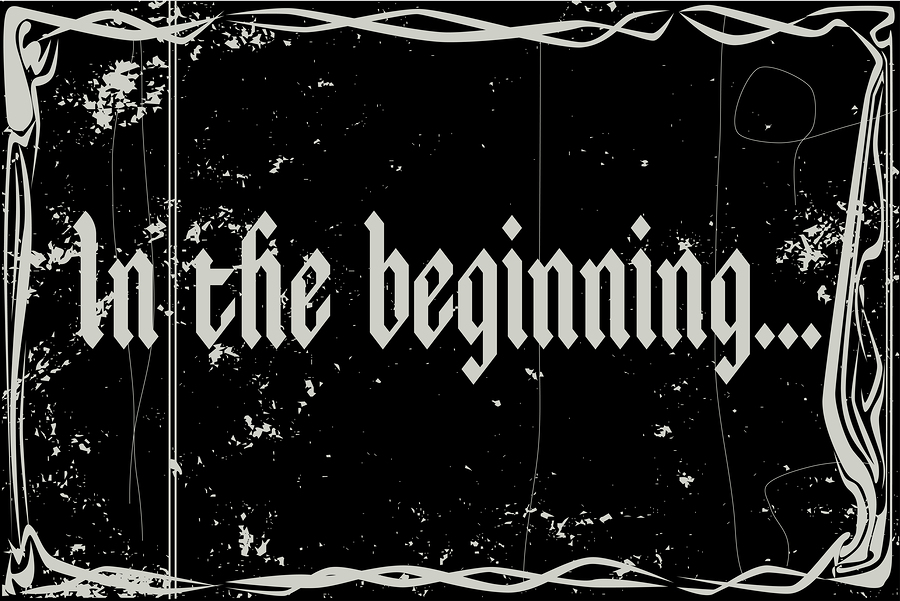No matter the issue, everyone is on the lookout for the one new thing that will make everything that preceded it obsolete and make their lives simpler and better.
The miracle pill, the new technique, the new technology, the killer-app, the new diet, plug in whatever new, shiny thing you like and life will be better because of it.
The reason we look for the one thing is the feeling that if only all the myriad of options could be eliminated and we didn’t need to make so many decisions or have so many choices, life would be better.
We yearn for a simpler day.
For example, there is still a limited market for audiocassettes and vinyl records and not just for nostalgia freaks. Some people prefer them to the newer formats.
People still take aspirin and gargle with Listerine.
You can still buy horse-drawn carriages with fringe on top.
Some simply prefer manual transmissions.
Bookstores and public libraries are still functioning.
In book publishing, we just need Facebook to promote and Amazon to sell. Simple, perfect, easy-to-manage. No problems.
Unfortunately, complete simplicity will never happen in this life, including book publishing.
If anything, the future will be more complicated, with more options and even more decisions to make every day. Whether you are a traditional or self-published author, as every day passes, life gets more complicated with more options and more things to consider.
New things rarely completely and permanently replace the old things. Every new thing simply adds more options.
MySpace still exists. So does AOL. They didn’t completely go away when Facebook and Gmail rose to prominence. They were diminished, but they didn’t disappear.
The duo of Facebook and Amazon are great if you want to keep things simple, but not everyone uses Facebook or buys from Amazon. Limited sales means limited stress, but I don’t know too many authors who think that purposely limiting the sales of their book is desirable.
What does the future look like for book publishing? A mix of everything new and everything that preceded it.
In book publishing, a mistake made by just about everyone is believing the most important party in the process is the publisher, or the author, a website, an ecommerce solution, a mobile app, an author platform, a marketing strategy, the writing quality, etc.
But the focus is misplaced.
The most important element in book publishing is the reader.
Everything else is simply the tool or the path to reach the reader. And readers want things on their own terms, in the format they like, at the price they want, when they want it, on the subject they want and obtained where they want.
If Rick Warren wrote a book titled, The Purpose-Driven Author or The Purpose-Driven Publisher, the first words would still be, “It’s not about you.”
(I am leaving out an application for The Purpose-Driven Agent because this is my blog post and I feel pretty good about myself today and didn’t want to ruin it.)
Publishers and authors alike begin a long, dangerous slide to ineffectiveness when they believe it is really all about them.
The most important skill every author, agent and publisher can develop is to understand readers who are not exactly like them. Living outside of your own limited point of view is essential for everyone. Seeing the world through the eyes of a reader is different than doing what is convenient and comfortable for you.
So, I am sorry to be the bearer of bad news if you are hoping to work towards a life filled with simplicity and control.
Publishing has never been simple or controllable and never will.





Thanks for this sharing this clear message and insight. Just like across the business world. it is all about the consumer. Delivering for your customer.
On target, Dan. The same point goes for author websites. Readers love the escape and vicarious adventure that good authors can deliver. When those readers visit an author’s site, their bottom-line purpose for being there is to find out, “Is there anything here for me?” If that site simply drones on and on about the author, the answer will be, “No. Nothing here for the reader.”
Dan, this makes perfect sense. One thing I learned early on my writing journey is that I want to attract readers, not necessarily other writers (though they are readers too). When I began blogging, I decided to try and focus on my target audience for my stories, to write posts that hopefully would speak to them. I’ve been pleasantly surprised to find that people not in who I considered my target audience also follow and comment on my posts.
I’m still figuring out how to connect with readers in other areas of social media. It feels like a tricky skill to figure out. I like what you said about everything else (Facebook, Amazon, publishers, etc) are a tool to reach readers. Great reminder.
Just because “you wrote it” doesn’t mean acclaim and a book contract with a fat advance check will follow I gave up the idea of writing being simple when I went to my first critique group. I gave up the idea of publishing being easy with my first rejection from a publisher.
One comment about author’s websites. I review them weekly for my interviews. It seems to me the higher up on the NYT Best Sellers list an author is, the less the personal connection. The site is all about the latest book, signing, links to buy, etc. The mid-range author is the one who reaches out to the reader and makes the site personally relevant.
Your point about the top authors being less person is very insightful Christine.
Humility is easy to lose and difficult to regain without some pain. The solution is not to lose it.
Or even less “personal” if I were any good at proof reading.
Dan, I get the impression, then, that we should constantly ask ourselves “what would I want to be reading if I were the reader rather than the author” or “how would I feel if I were reading this for the first time?” This makes sense, in spite of the “noise” that comes from the distractions of various types and wide variety of social media. As a communications instructor, I lecture about the distractions that prevent us from communicating more clearly; it sounds like that is what you are talking about here.
Best,
Sheri
Great point Sheri. I think writers and speakers can themselves be distracted by all the “tools” available to them rather than focusing on whether the audience can hear them.
In other words, sometimes the communicator gets in their own way. Like the speaker who is consumed with their Powerpoint rather than the point of the Powerpoint.
Thanks, Dan!
I think your post supports the idea that good writers should be good readers, as well–being an ardent reader automatically puts us in the receiving role of the writer’s output, and if we’re paying attention, ought to help us identify, and identify with, the readers we want to reach. For many years it seems that I only had time to do one or the other–read or write, and the need to write was more compelling than the need to read. Now I’m making myself take time to read historical fiction, the genre in which I’d like to publish next, and it’s been an eye-opener! I’ve discovered one best-selling author whose work I don’t enjoy at all, and another’s whom I love. Isn’t that a great lesson in becoming a better writer myself? Ask not for whom the book was written–it was written for thee. (Sorry–couldn’t resist! ;-D)